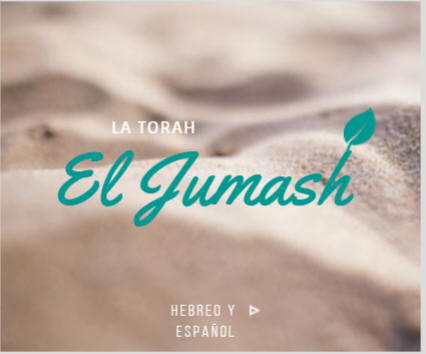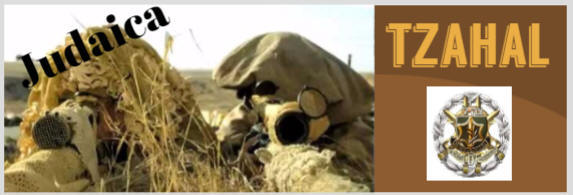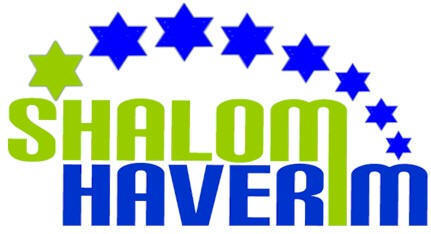|
Ashkenazi |
Se refiere a las comunidades Judias
de Centro o europa del Este |
|
Bedikah |
Examinación Interna (pl. bedikot) |
|
Bedikah Ropa |
Ropa blanca usada para el Examen
Interno, tambien llamado ED |
|
Braja |
Bendición; Bendiciones que son
recitadas en varias ocasiones incluyendo en la inmersion -mikveh-
ritual. (pl. brajot) |
|
Tiempo de las Velitas |
En muchos lugares cerca de 20 minutos
antes de la puesta del sol en las tardes de los Viernes.. |
|
Cesarea |
Operación quirurgica para extraer un
bebe a traves del abdomen |
|
Cervix |
La "Nuca" del Utero. La
parte que se abre en la vagina. |
|
Chabad o Jabad |
Lubavitch, un subgrupo de
Jasidism |
|
Chatan o Jatan |
El Novio (algunas veces tambien
pronunciado Josson) |
|
Chatzitzah o Jatzitzah |
Barrera externa -asunto ajeno- que
impide una valida inmersion o mikveh. |
|
Chupah o Jupah |
Ceremonia Judia de matrimonio (literalmente,
canopia matrimonial) |
|
Chupat Niddah o Jupat Niddah |
ceremonia matrimonial en que la novia
esta bajo niddah |
|
Dam Betulim |
"Sangre Virginal" o
Sangrado del Hymen después de la primera relación |
|
Dam Chimud o Dam Jimud |
Sangrado producido por la excitación
del acercamiento de la boda. |
|
Ed |
ver Bedikah ropa |
|
Erev Shabbat |
Atardecer antes del Shabat, vale
decir, Viernes por la tarde/noche. |
|
Erev Yom Tov |
Atardecer antes de un Dia de Fiesta |
|
Haflagah |
Interval (number of days) from the
first day of one menstrual period to the first day of the next
(inclusive) |
|
Halacha |
Jewish law |
|
Harchakot |
Restrictions designed to minimize the
possibility of physical contact between a couple while the wife is
niddah |
|
Hefsek Taharah |
Internal examination to establish
that uterine bleeding has ceased (also called hefsek) |
|
Henetz Hachamah |
Sunrise (also called netz hachamah,
netz) |
|
Iyar |
Jewish lunar month following Nisan |
|
Kallah |
Bride |
|
Ketem |
A stain that may render a woman
niddah (pl. ketamim) |
|
Levanim |
Literally white [days], another term
for shivah neki'im |
|
Meineket |
A woman during the 24 months after
childbirth (literally, breastfeeding woman) |
|
Menopause |
Point in a woman's lifecycle where
menstruation stops completely |
|
Menses |
A synonym for menstruation |
|
Menstruation |
Hormonally regulated shedding of the
uterine lining |
|
Mesuleket Damim |
A woman who would not normally
menstruate, amenorrheic |
|
Meuberet |
Pregnant woman |
|
Mikveh |
Ritual bath in which a niddah
immerses and becomes tehorah, also spelled mikvah (pl. mikvaot) |
|
Mitzvah |
Commandment (pl. mitzvot) |
|
Moch Dachuk |
Bedikah cloth inserted into the
vagina from sunset until nightfall immediately following hefsek
taharah (also called moch) |
|
Nisan |
Jewish lunar month which falls during
March and April |
|
Niddah |
Halachic status, acquired through
menstruation or other uterine bleeding, during which physical
contact between husband and wife is forbidden. |
|
Onah |
Literally, a time period (pl. onot)(1)
one day or night, measured from sunrise to sunset or from sunset to
sunrise(2) the length of one menstrual cycle(3) the mitzvah for a
couple to have relations (mitzvat onah) |
|
Onah Beinonit |
30-day average
interval between periods |
|
Onat Perishah |
Period of separation
at the time of expected menses; marital relations are forbidden and
the woman must do an internal examination. (pl. Onot Perishah) |
|
Ovulation |
The exit of a mature
ova (egg) from the ovary |
|
Rosh Chodesh |
Beginning of a new
Hebrew month, observed on the 1st day of the month. If the previous
month had 30 days, then Rosh Chodesh is observed for two days: the
30th of the previous and the 1st of the next. |
|
Sephardic |
Refers to Jewish
communities of Mediterranean or Middle Eastern origin |
|
Shabbat |
Sabbath, a day of
rest observed from sunset Friday until nightfall Saturday (also
called Shabbos) |
|
Shekiat Hachamah |
Sunset (also called
shekiah) |
|
Shivah |
Week of mourning
following the death of a close relative |
|
Shivah Neki'im |
Seven blood-free days
counted as part of the process of exiting the halachic status of
niddah |
|
Shulchan Aruch |
Authoritative code of
Jewish law |
|
Sivan |
Jewish lunar month
following Iyar |
|
Taharah |
(1) Removal of niddah
status; (2) Ritual purity |
|
Taharah Cloth |
see Bedikah cloth |
|
Tammuz |
Jewish lunar month
following Sivan |
|
Tehorah |
Halachic status of a
woman who is not niddah |
|
Tevilah |
Immersion in the
mikveh |
|
Tisha B'Av |
Fast day
commemorating destruction of the Temple |
|
Trauma |
An action that can
cause a wound |
|
Tumah V'taharah |
Ritual purity and
impurity |
|
Tzet Hakochavim |
Nightfall (literally,
when the stars come out, also called tzet) |
|
Uterus |
The womb, the
muscular organ where a pregnancy develops |
|
Vagina |
The external opening
of the female genital tract |
|
Veset |
Time or circumstance
when menstruation is anticipated |
|
Veset Haguf |
Menstrual cycle whose
timing is based on physical symptoms |
|
Veset Hayamim |
Menstrual cycle whose
timing is based on the calendar |
|
Veset Kavua |
Established cycle,
regular period |
|
Veset She'eino Kavua |
Irregular cycle,
menstrual pattern which is not yet established |
|
Yoledet |
Woman during the
period after childbirth |
|
Yom Hachodesh |
Date exactly one
Hebrew month after the beginning of a woman's previous menses |
|
Yom Kippur |
Day of Atonement |
|
Yom Tov |
Holiday, on which
work is forbidden (also called Yuntif) |








